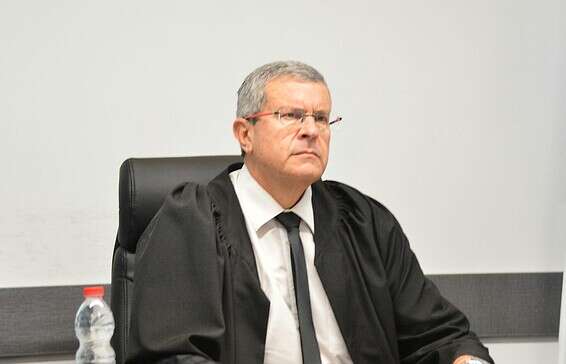It is imperative to read all 38 pages of the report written by David Rosen, a friend of Mandelblit, in order to understand how senior Salah a-Din officials are working to protect PM investigators
Attorney General Avichai Mandelblit // Photo: Mark Israel Salem
Sen. Dubi Scherzer has previously questioned Attorney General Mandelblit with a warning on suspicion of committing offenses of fraud and breach of trust.
About three months ago, Scherzer addressed the Commissioner of Audit, David Rosen, with a complaint about the DIP director of the Bar-Menachem Foundation in two cases that directly and indirectly concern the Prime Minister's investigations.
It is necessary to read all 38 pages of the report written by Rosen, a friend of Mandelblit, in order to understand how senior Saladin officials act behind the scenes, away from the public they are supposed to serve, to protect senior police investigators who worked with them to interrogate the prime minister.
It is not inconceivable that Rosen withdrew his defense from Deputy State Attorney Lemberger, after removing his education in the eyes of Mandelblit, who preferred Amit Eisman over him.
Rosen states that the delay in the decision by Lemberger, regarding the conflict of interest in which the police investigator had a marital relationship with a rival of the Netanyahu family, while conducting the investigation of the dormitory case, and while he is aware of a secret investigation against his partner's brother, in the 2000 case, is Puzzling and unacceptable.
There is also criticism of the non-transfer of the materials to the prosecution and the defense.
Lawyers in the private sector will be happy to learn how the prosecution works when a desired outcome is required.
Rosen comments that the need to prepare another and conflicting opinion, beyond the opinions that were prepared and transferred by DIP to Lemberger back in the period when Uri Carmel served as DIP director, is puzzling.
But the director of DIP thought that her position must have been required, since by virtue of her position, her position should and must be heard, before Lemberger when making his decision.
The entry of a new State Attorney and Attorney General reopens all opinions of their predecessors in the role of Aliba Dabkiri Saladin, and opens the door for defense attorneys to raise their claims in the future.
Rosen emphasizes in his opening remarks that the decision whether to open an investigation or a criminal investigation into the officer's case, or not, is a decision that is at the core of the State Attorney's Office's legal and professional judgment, which he should not interfere with.
In the same breath, he swallows in the unconnected paragraph later in the report, a statement that is not within his authority as stated above, that Lemberger's position regarding the considerations that led the prosecution to close the case is reasonable. Who would bother to read 38 pages.
Much more can be learned from what is detailed in the report. Thus, for example, how Rosen allows the Bar-Menachem and Lemberger Foundation to appear before him during the examination of the complaint against them. A futile inquiry based on the nylon messages (interesting to see how DIP manages its version after learning about it That Scherzer and Saada are willing to be tested in a truth machine), instead of a criminal investigation required in such a da.
Routinely, the testimony of a police officer or attorney will be preferred over the testimony of an elected public or ordinary citizen.
Rosen is required to decide between the testimony of police officer Scherzer and the deputy head of DIP Saada against the DIP director in the case of examining the criminal pressures in the investigation of Nir Hefetz.
On the one hand, they accuse the DIP director of "disrupting an investigation" and submitting a lie to the commission while they are willing to be examined by a police polygraph. On the other hand, it is alleged that the two conspired and had a false plot against her.
Suddenly, Rosen is not decisive and does not send the complaints to the Israel Police, which will interrogate the DIP director with a warning, but instead directs State Attorney Eisman, who is in charge of DIP
The best of his mind and strength to remove the cloud.
"Things cannot be left in place. The cases are shrouded in a heavy cloud that the State Attorney's Office deserves to do everything in its power to remove and as soon as possible."
The shame was lost.









